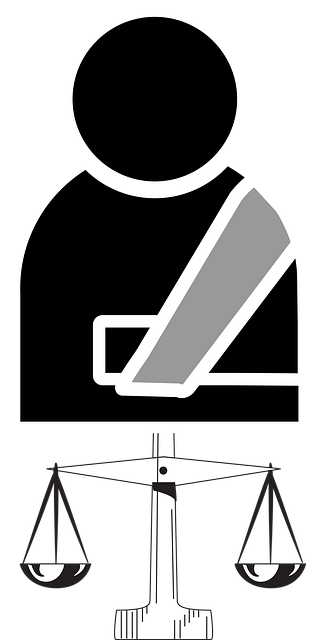Personal injury law protects victims of negligence or intentional harm, covering a wide range of scenarios from car accidents to medical malpractice. It involves key concepts like 'negligence' and 'damages', with legal professionals guiding clients through evidence gathering, negotiations, and court proceedings. These experts ensure victims' rights are protected and secure fair compensation for losses, including medical expenses and pain and suffering. Specialized attorneys are vital in navigating complex personal injury cases and maximizing compensation.
Personal injury law encompasses a wide range of legal issues, from car accidents and slip-and-falls to medical malpractice and workplace injuries. Understanding this complex area is crucial for victims seeking justice and compensation. This article delves into key aspects of personal injury law, including definitions, common claim types, the role of legal professionals, and navigating compensation. By exploring these topics, individuals can better grasp their rights and options when pursuing a personal injury claim.
- Understanding Personal Injury Law: Key Definitions and Scope
- Common Types of Personal Injury Claims and Their Process
- The Role of Legal Professionals in Personal Injury Cases
- Navigating Compensation and Damages in Personal Injury Lawsuits
Understanding Personal Injury Law: Key Definitions and Scope

Personal injury law is a complex legal field that compensates individuals for physical, emotional, and financial injuries caused by the negligent or intentional acts of others. At its core, this area of law aims to provide justice and redress to victims while holding responsible parties accountable. Key terms in personal injury law include “negligence,” which refers to a failure to exercise reasonable care, and “damages,” representing compensation for losses suffered.
The scope of personal injury law is broad, encompassing various scenarios such as car accidents, medical malpractice, slips and falls, product liability, and wrongful death. It protects the rights of individuals who have been harmed due to another party’s carelessness or intentional misconduct, ensuring they receive fair compensation for their injuries. Understanding these fundamental definitions and the reach of personal injury law is crucial for both victims seeking justice and legal professionals navigating this specialized field.
Common Types of Personal Injury Claims and Their Process

Personal injury claims encompass a wide range of legal cases where an individual suffers harm due to someone else’s negligence or intentional actions. The most common types include car accidents, medical malpractice, slip and fall incidents, product liability, and workplace injuries. Each claim follows a distinct process, starting with identifying the liable party and gathering relevant evidence, such as police reports, medical records, and witness statements.
The process then involves filing a legal claim or lawsuit against the responsible party. This can be done through negotiations, where an agreement is reached for compensation, or litigation, which requires going to court. Legal professionals specializing in personal injury law guide clients throughout this journey, ensuring their rights are protected and they receive fair compensation for their injuries and associated expenses.
The Role of Legal Professionals in Personal Injury Cases

When navigating a personal injury case, the role of legal professionals is invaluable. Attorneys specializing in personal injury law have an extensive understanding of relevant statutes and regulations, which they leverage to ensure clients receive fair compensation for their injuries. They guide clients through each stage of the legal process, from initial consultation to trial or settlement negotiations.
These legal experts collect and analyze evidence, interview witnesses, and draft legal documents crucial for building a strong case. Their strategic insights and persuasive arguments significantly enhance the likelihood of a favorable outcome. Moreover, they provide emotional support and explain complex legal jargon in understandable terms, empowering clients to make informed decisions throughout their legal journey.
Navigating Compensation and Damages in Personal Injury Lawsuits

When it comes to compensation and damages in personal injury lawsuits, understanding your rights and options is crucial under personal injury law. The goal is to ensure you receive fair and adequate reimbursement for your losses, which can include medical expenses, lost wages, pain and suffering, and more. Each case is unique, so a thorough assessment of the specific circumstances is essential. This involves reviewing medical records, calculating economic damages, and evaluating non-economic ones—all in accordance with personal injury law guidelines.
Navigating this process requires legal expertise. Attorneys specializing in personal injury law can help clients understand their entitlements, gather necessary evidence, and negotiate with insurance companies or defend against claims in court. They ensure that all legal requirements are met, which is vital to securing the maximum compensation possible under the law.
Personal injury law is a complex yet crucial field that safeguards individuals’ rights and ensures justice. By understanding key definitions, common claim types, and the role of legal professionals, victims can navigate their cases effectively. This knowledge empowers them to pursue fair compensation and damages, ultimately fostering a safer and more accountable society in the digital era and beyond.
